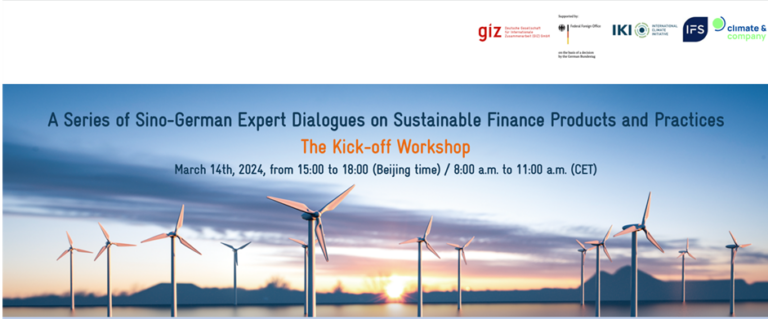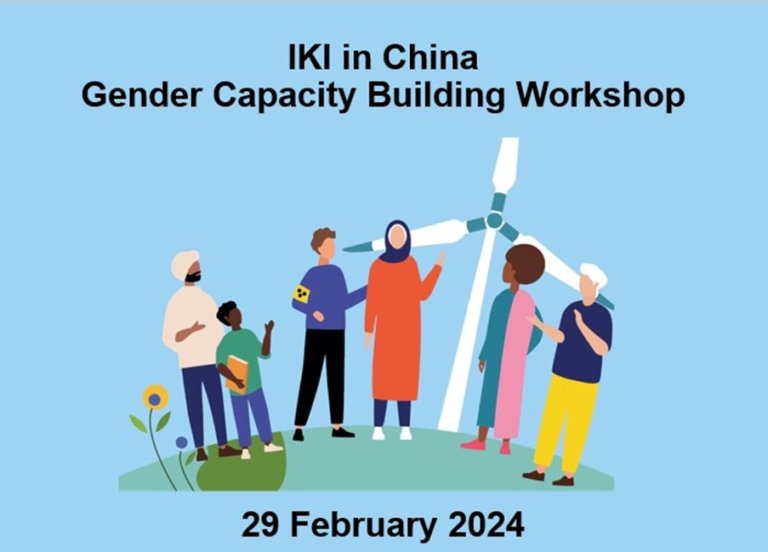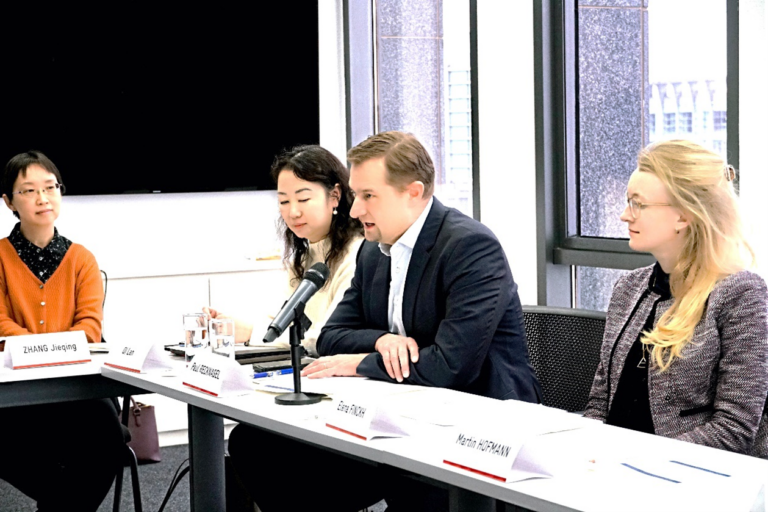
The GIZ’s “Climate Partnership” project together with the Climate Policy Initiative (CPI) co-hosted a workshop on Scaling Innovative Climate Finance in China on March 17, including a dedicated session on representative case studies from the Global Innovation Lab for Climate Finance and the possibilities of replication of innovative instruments in China.
The workshop was geared to Chinese financial stakeholders, such as state-owned and private enterprises as well as investors.
Ms. June Choi, analyst at CPI, presented key figures on the status of green finance in China. In 2017 and 2018, green finance in China reached a volume of $320 billion, roughly 60% of which were used in mitigation projects such as the construction of solar and wind parks. 37% and 3% of the total volume respectively were used in other environmental projects, such as ecological construction and resource conservation. Most of the green finance was provided by public sponsors, such as policy banks and state-owned commercial banks, which carried about 51% of the investment load. The remainder of the finance volume was almost evenly split between joint ownership entities and private investors, which contributed about 25% and 24% respectively. For the period of 2021-2030, China faces an investment gap of at least US$ 1 trillion, based on the climate targets set by the State Council 2015. According to the Institute for Climate Change and Sustainable Development (ICCSD) of Tsinghua University, China’s energy transition will require investments of $21 trillion in energy infrastructure between 2020-2050. Furthermore, the current green penetration of China’s financial system remains at around 4%. Precisely, the green share is 7% in bank loans outstanding, 1% in bonds, 1% in listed equity and 5% in insurance, with a total amount of $23.8 trillion, $13 trillion, $9.4 trillion, and $2.6 trillion respectively, showing that there is a vast potential for growth in the Chinese green finance industry.
On this account, Ms. Carla Orrego, project manager at CPI, introduced the “Global Innovation Lab for Climate Finance”, a public-private partnership coordinated by CPI directed at accelerating access to finance for low-carbon development. Three innovative instruments were introduced by representatives from “The Lab”: The International Finance Corporation’s “Breathe Better Bond” Initiative (BBB), Conservation International’s “Restoration Insurance Service Company” (RISCO) and the “Cooling as a Service” (CAAS) Initiative by the Basel Agency for Sustainable Energy (BASE) and the Kigali Cooling Efficiency Program (K-CEP).
The “Breathe Better Bond Initiative” supports public entities in issuing bonds to finance sustainable investments in waste management, solar power generation, electrified transport and building energy efficiency. In a simulated case study on a hypothetical South Asian city, the BBB projected CO2 savings of 3.4 million tons over 8 years for a $130 million BBB issue coupled with $387 million project debt. The BBB could be a viable tool for Chinese municipalities aiming to reduce energy usage and pollution levels.
RISCO is a social enterprise that invests in mangrove conservation and restoration in coastal areas in order to protect blue carbon and reduce flooding and property damage risk. It secures revenue from the sale of blue carbon credits and from insurance companies who benefit from reduced flooding risk. In their pilot project in the Philippines, RISCO is projecting to achieve emission reductions of 600, 000t CO2 over a ten-year period. RISCO argues that while the insurance sector is developing rapidly in China, there is a significant catastrophe insurance gap, and potential for mangrove reforestation and protection along the South Chinese coast.
“Cooling as a Service” is a project launched by BASE and K-CEP directed at increasing investments in energy-efficient cooling by promoting the cooling as a service model, in which rather than making a one-time investment in cooling appliances, building and business owners pay for the cooling service, therefore incentivizing the cooling provider to install the cooling technology that has the lowest life-cycle cost. Using this model, CaaS has reduced emissions from cooling by up to 49% in case studies in India and Nigeria. As cooling demand is rising in China and already installed cooling capacities offer a large potential for emission reduction, CaaS present themselves as a potential asset for China’s long-term goal to improve energy efficiency of refrigeration and air-conditioning equipment.
GIZ and CPI agreed to host more webinars in the future to introduce innovative climate finance instruments to China.



